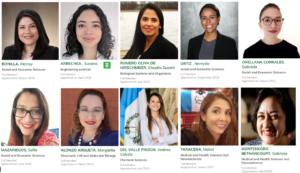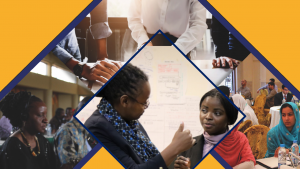Guest post: Voices from the ground: policy makers’ challenges to the use of evidence
Politics & Ideas (P&I) is a joint initiative of researchers and professionals to co-produce and share knowledge on the link between ideas and policy in developing countries. As part of the VakaYiko project, INASP is providing P&I with a grant to develop an online course aimed at developing the capacity of Latin American policy makers to use, and promote the use of, knowledge in policy making.
In this post, first published on the P&I blog in October, Vanesa Weyrauch and Leandro Echt from P&I shared their learning from the development of this online course. They called for policy makers to contribute with ideas on how would like to be supported in promoting a vivid culture of using evidence in policy making. The purpose was to give more voice to Southern policy makers to co-build a new capacity development agenda, and collect inputs to define the approach of the course, design the curricula and identify the capacities to be developed.
We [recently] called for policy makers to contribute with ideas on what they would like to address in a course focusing on supporting mid-level policy makers interested in promoting a vivid culture of using evidence in policymaking. The purpose was to give more voice to Southern policymakers to co-build a new capacity development agenda, and collect inputs to define the approach of the course, design the curricula, identify the capacities to be developed, etc.
We committed to share the results of the survey, which are organized and summarized in the following lines:
Challenges for the use of evidence in public policy
The question about which are the main challenges to use evidence in policy making revealed a broad set of issues, which can be categorized in two broad areas: 1) those concerning the political and policy dynamics and 2) those emerging from the research process. This post will concentrate in the first ones (the second ones will be addressed in an upcoming post)
From the political and policy dynamics
First, many participants of the survey suggested that policy makers in general have very low capacity (skills and knowledge) to use evidence. Moreover, sometimes this lack of capacity is masked by arguing lack of time or access to good research.
Another important point was that the systems and processes surrounding the design and implementation of policies do not require explicit evidence that supports or contrasts decisions made during the policy making.
Incentives and motivations are also a big concern. Mid level policy makers only resort to evidence to the extent that this is considered important in their workspaces (that is, to the dynamic of decisions and to their leaders of their organizations). So it is important that political leaders establish the use of evidence as a way of working within their agencies.
It also happens that ideas coming from research may be negative in terms of the implementation of certain political plans. That’s why other pointed challenges were that some policy makers prefer to work with evidence produced by those few institutions which are uncritical to government. But even when the political system decides to listen to other researchers who might not be aligned with the government, it generally only listens to the most experienced and recognized researchers, thus limiting the plurality of voices that can make contributions to the decision making.
Finally, many participants pointed that the lack of awareness about new research findings as one of the main constraints to its use. This might be linked to both the lack of effectiveness from the research side to communicate findings but also may mask the policy makers’ lack of skills to identify inputs that can be really helpful for their work.
These were the main challenges and skills surrounding the use of evidence that were pointed by those who kindly answered the survey. From P&I we will make efforts to address these challenges along the course.
For instance, the different decision makers’ styles could be analyzed in order to detect diverse and concrete strategies to convince leaders to support the use of evidence within their agencies.
Also, modules could consider the different sources from where trainers can obtain evidence for their works: think tanks, universities, knowledge networks, and also information systems within their agencies. In this sense, incorporating a good stakeholder analysis that reflect how politics also affect these groups as well as guidance on how to compare sources and decide which information to use and how would help participants deal with the real challenges implied when trying to promote the use of evidence.
In terms of methodologies, a workshop could help trainees more thoroughly process and communicate evidence that reveals flaws in a certain policy, i.e. by proposing gradual changes internally or by promoting the discussion and decision-making in groups in a learning and improvement context.
Current or former policy makers could also be invited to share their experiences in the use of evidence through a webinar or by writing a brief piece to be included in a module. Their participation could help trainees to understand how others on their same situation have faced those challenges and provide an opportunity for this knowledge to be systematized and shared.




